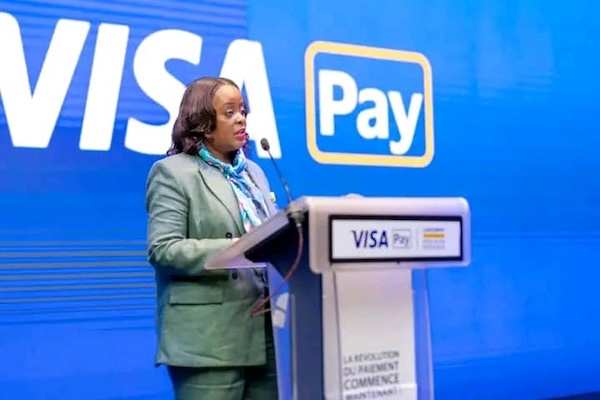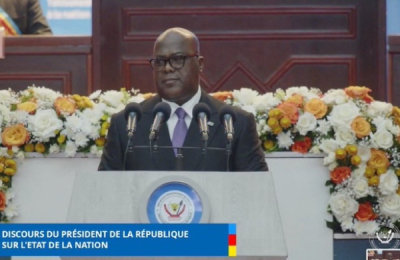-
Visa launches Visa Pay app in Kinshasa to boost digital payments and financial inclusion
-
Service supports CF and USD transactions, with low-cost bank account options for unbanked users
-
Five banks onboard, with more joining soon; DRC chosen as pilot market due to high cash usage
Visa has launched its Visa Pay mobile application in Kinshasa, aiming to expand access to digital financial services in the Democratic Republic of the Congo (DRC), where cash remains the dominant payment method.
Launched on September 4, the app allows users to transfer money, pay merchants, make deposits and withdrawals, and shop online using virtual cards. Transactions can be made in both Congolese francs (CF) and U.S. dollars (USD).
Sophie Kafuti, General Manager of Visa DRC, said the initiative seeks to reduce costs, improve interoperability, and support financial inclusion. “Today in the DRC, there are several fragmented payment systems. With Visa Pay, payments become secure, fast, and reliable, accessible to students and seniors alike, whether banked or unbanked,” she said.
Accessible, low-cost tool
Designed to consume little mobile data and memory, Visa Pay also allows users without a bank account to open one at low cost with partner banks. “Thanks to agreements with Visa, people can access affordable banking services,” said François Jurd De Girancourt, Visa Vice President for Strategy in Central Europe, the Middle East, and Africa.
The rollout begins with five banks — Access Banque, FBN, Sofibanque, Solidaire Banque, and UBA — with BGFIBank, Equity Bank, and TMB expected to join shortly. The app is also available via partner banks’ mobile platforms and can be downloaded from the App Store and Google Play.
Pilot Phase
Visa chose the DRC as a pilot market due to its high reliance on cash. The country’s financial ecosystem, combining banks and mobile operators, was seen as favorable for building an interoperable solution.
The launch follows Visa’s expansion in the DRC since 2022, including partnerships with Vodacom — which issued 150,000 Visa cards linked to M-Pesa — and a $1 million financial education program with the Financial Inclusion Fund (FPM).
Ronsard Luabeya










